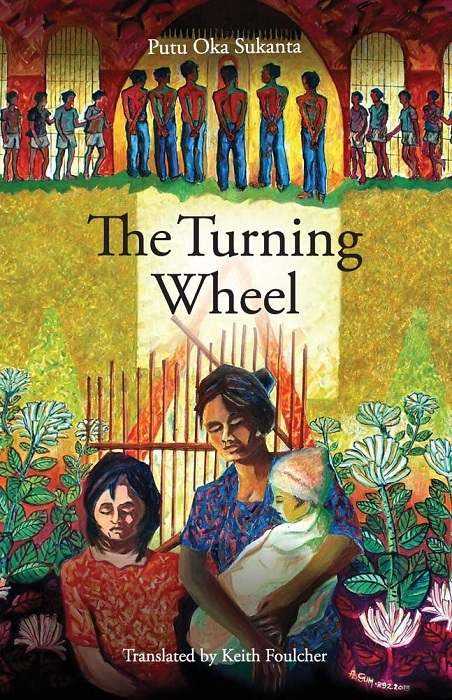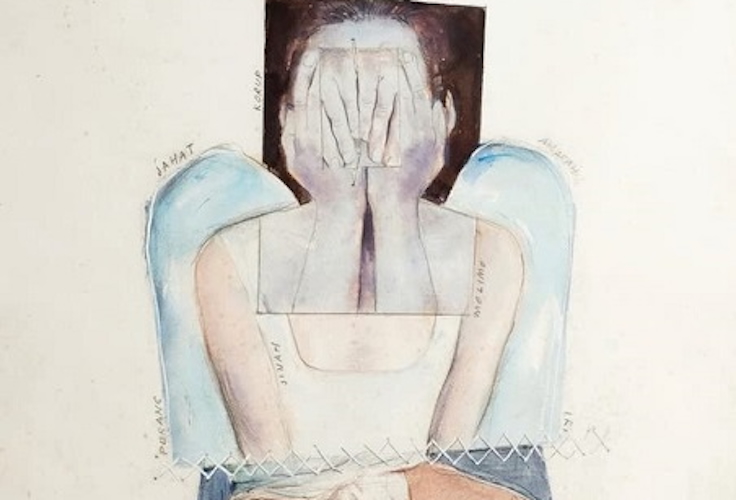Translations of Putu Oka Sukanta’s trilogy of novels, bring his stories of struggle, oppression and resilience spanning over sixty years of Indonesian history, to an English-speaking audience
Indonesian history will be forever marked by the countless deaths following the overthrow of President Sukarno in 1965. The number of deaths is now estimated to be between two and three million. Those killed were not only those members of the Indonesian Communist Party (PKI) falsely accused of instigating a plot to gain power, but people who had joined legal organisations such as trade unions or who were seen to be on the ‘left’. Many more were killed as a result of rumours or personal disputes. In the prevailing atmosphere, merely claiming a person to have a ‘leftist’ or ‘pro-communist’ orientation was sufficient to have a mob, often backed by the military, kill that unfortunate individual, sometimes in a most frightful and brutal manner.
In addition, more than a million people were detained on suspicion of ‘leftist’ beliefs, and of them only about one thousand were ever brought to trial. Many remained in detention for years, often in remote locations such as the infamous Buru Island, far from their families. In 1967, I visited the island of Nusa Kambangan, on Java’s south coast near the town of Cilacap. The island had been turned into a giant prison camp for political prisoners where they languished with no idea of what they had done to deserve this, and no idea of what their fate would be. Some 12,000 detainees were taken to the remote island of Buru where they were forced to eke out a lonely and hard existence for many years. While some were released in the mid-seventies, the camp was not closed until 1980.
Before 1965 Putu Oka Sukanta was a writer and poet. He was considered to be a member of LEKRA or People’s Cultural Institute, a ‘left’ association of writer and artists, and was detained without charge from 1966 until 1976. Upon his release, he resumed life as a writer and activist albeit it under very different and difficult circumstances. For the following two decades, he was unable to publish his work nor to earn a living from his writing.
Following the fall of the New Order government in 1998, Sukanta published collections of short stories and poetry, edited the work of others who had been denied a voice, and most significantly, wrote and published a trilogy of historical novels based on his own life: Merajut Harkat was published in 1999; Istana Jiwa in 2012; and Celah in 2018. The trilogy covers nearly sixty years, from the early 1960s till around 2015. The first of the trilogy to appear in translation was in fact its third part, Spaces (Celah), was published to coincide with Sukanta’s 80th birthday in October 2019. It is a fictionalised memoir of the author’s life.
Its publisher Lontar has now released a translation of the first and second books in the trilogy. All three novels have been translated by Keith Foulcher who has sensitively and sympathetically made them as readable in English as they are in Indonesian.
Repression and resilience
One might wonder how a person survives such a lengthy period of detention, isolation, physical brutality and the uncertainty of existence. Sukanta’s first volume in this trilogy, Threads of Dignity, allows the reader to see and feel such a reality, and to learn how one’s inner resources can be called upon to deal with such a situation on a day-to-day basis. The author draws on his years of imprisonment to recount the harrowing life in detention of the main character, Mawa.

What is particularly significant about the second volume in the trilogy, given the English title The Turning Wheel, is that it recounts the hardship faced after 1965, by the families of those murdered and detained. It reveals the strength demanded of their wives who suddenly needed to find a livelihood when their husband, usually the breadwinner, was detained. A detainee’s whole immediate and extended family was tainted as being ‘communist-related’ and this meant that most people avoided them for fear of being similarly affected. The children of detainees faced taunts and bullying at school as being children of ‘communists’.
The Turning Wheel thus reveals an aspect of the Suharto (and post-Suharto) years that has only very recently begun to be discussed or understood - the economic and mental hardship, and the daily degradation, endured by hundreds of thousands of women and children. The experiences of these families are told through characters whose lives are traced from the period before 1965, through the horrors of 1965, and then during the subsequent years of upheaval and hardship that placed a toll on their mental and physical health.
The novel also sympathetically explores the dynamics of what happened when detainees were released and had to deal with members of their family who had, out of necessity, built their own independent lives. The released detainees not only faced having to deal with the psychological trauma of the events they had undergone but also found that they no longer filled the traditional roles of husband and father that they had prior to detention. The novel explores the way the characters dealt with such challenging experiences.
While The Turning Wheel is a novel that tells the lives of fictionalised characters, it is anchored in historical reality with mentions of real events and people. For example, Maria, one of the characters in the novel, while in detention, befriends Carmel Budiardjo, who was a British-born human rights activist married to an Indonesian activist and was indeed detained from 1968 to 1971. Upon her release, she was deported to England where she founded Tapol, a human rights organisation that campaigned for the release of Indonesian political prisoners. Her husband was not released until 1978.
The Turning Wheel follows the lives of its characters up until after the overthrow of Suharto and pays particular attention to how the political ideas of the younger generation try to deal with constant denigration of ‘left’ ideas in the light of the need for a socially just future for Indonesia. In this way, the book speaks as much to present-day Indonesia as it does to Indonesia’s recent and often horrific past.
The publisher, Lontar, is to be commended for supporting translations of significant Indonesian works such as these novels. The literature now available in its translation series represents a wonderful resource for the rest of the world, providing English-language readers with texts that seamlessly bring to life the Indonesian world of the characters.
Putu Oka Sukanta, Threads of Dignity, trans. Keith Foulcher, Jakarta, Lontar Publishing, 2022 and Putu Oka Sukanta, The Turning Wheel, trans. Keith Foulcher, Jakarta, Lontar Publishing, 2022.
Ron Witton (rwitton44@gmail.com) studied Indonesian and Malayan Studies from the University of Sydney and has a Ph.D. from Cornell University. He has worked as an academic in Australia and Indonesia and now practises as an Indonesia and Malay translator and interpreter.












